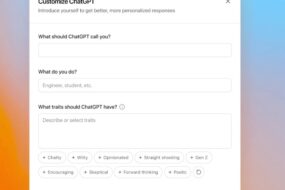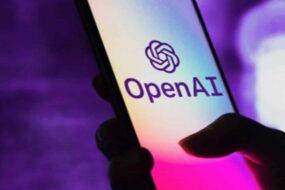
Source: Madeline Garfinkle/Entrepreneur
As prompt-driven AI chatbots, such as ChatGPT, have garnered worldwide attention and tech giants enter the artificial intelligence race with urgency, machine-learning tools are simplifying a slew of everyday tasks. Now, as a new technological frontier has begun, the question looms as to where humans stand in the future of an AI-operated world.
On Sunday, the World Economic Forum released its “Future of Jobs” report, which estimated that nearly 14 million jobs could be eliminated by 2027 — due primarily to increased automation of many work tasks.
While the report’s predictions used a five-year benchmark, AI has already disrupted a swarm of industries.
On Monday, International Business Machines Corp. (IBM) CEO Arvind Krishna told Bloomberg that the company intends to pause or slow hiring on roles it believes could be entirely outsourced to AI. Krishna estimated that the adoption of AI could replace nearly 30% of its workforce, amounting to 7,800 jobs.
Back in January, Alphabet (parent company of Google) announced 12,000 job cuts to focus on AI development — a similar move by Microsoft, which also cut thousands of jobs and increased AI spending.
But AI isn’t just affecting tech giants competing in a new technological frontier or business magnates looking to automate tasks — several businesses have already noted losses due to the widespread use of machine learning tools like ChatGPT.
Homework help platform Chegg, which focuses on essay writing and other related things, said in an earnings call on Monday that ChatGPT has vastly impacted its business. As of Tuesday morning, the company’s stock is down over 60% year-to-date.
Chegg is working with OpenAI to develop its own AI technology, CheggMate. The tool is positioned to guide student learning and be interactive, so students can ask new questions or prompt the tool to explain things in a different format.
The somewhat “if you can’t beat them, join them” approach by Chegg is not uncommon as artificial intelligence disrupts tasks that — until recently — seemed impossible without human cognition. Other companies like Snap and Tinder have utilized artificial intelligence to streamline processes and garner more engagement as competition rises. The increasing integration of AI only furthers the World Economic Forum’s prediction that millions of jobs will be extinct at the current pace of adoption.
However, even in the wake of an AI revolution, human cognition is still valued — maybe now more than ever. The report found that with the increasing integration of technology, creative and analytical thinking skills were among the most desirable traits in workers now, and in the next five years.
It may be too soon to say, but critical thinking skills and creativity could be the difference between job security and elimination.
Source: Madeline Garfinkle/Entrepreneur






